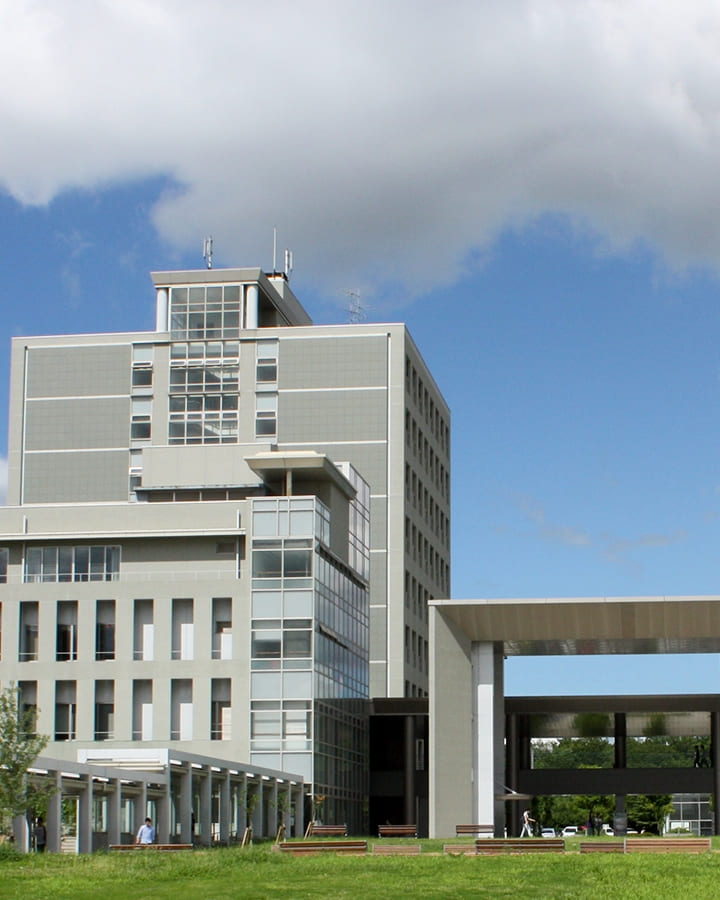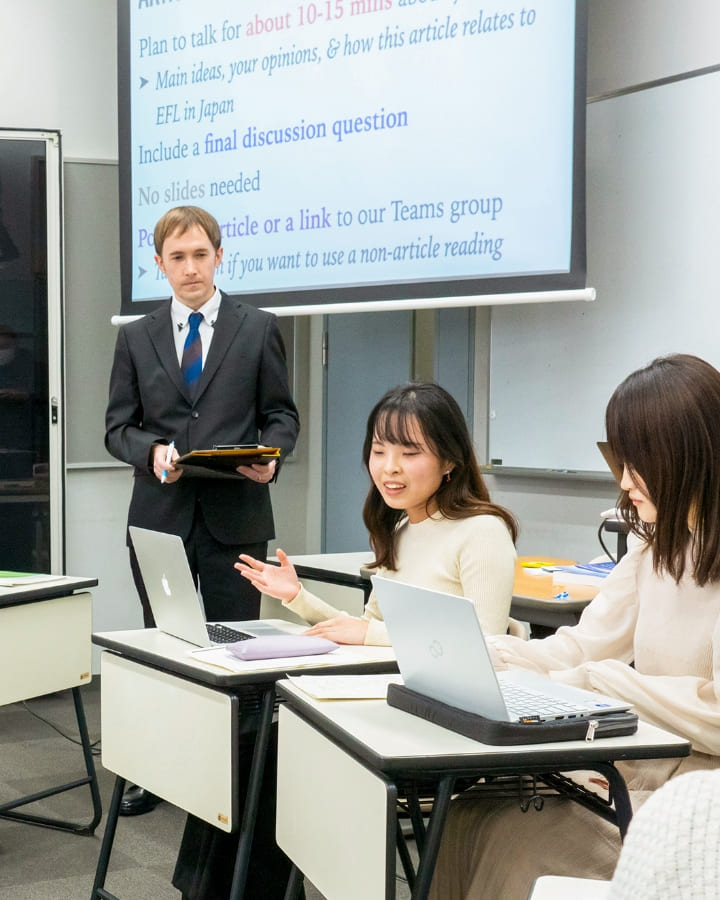
Acquire the advanced expertise and problem-solving skills in information science & technology
required by the global information society.
Currently, labor shortages are expected to occur due to the rapidly declining birthrate and aging population, and there are concerns that this will hinder economic growth over the medium to long term. Therefore, proactive efforts are required to create new industries, upgrade local industries, and secure a truly prosperous lifestyle for local residents, and a shift to an intelligence-intensive industrial structure through the use of advanced, cutting-edge technologies centered on information technology is called for.
The University aims to contribute to the promotion and development of academic research in information science and to foster highly specialized professionals (advanced information systems engineers) with the advanced expertise in information science and problem-solving skills that are needed by local communities.
Admission policy
Yoshioka Hiroki
Message from the Dean
The Graduate School of Information Science & Technology at Aichi Prefectural University, established in 2002, was conceived as a beacon of knowledge dedicated to the advancement of next-generation manufacturing technologies. Our mission is to cultivate highly skilled information system engineers, proficient in the specialized knowledge and technologies of computer science and related fields of study, who possess the ability to independently innovate and develop new information technologies. In doing so, we aim to contribute to the creation of a prosperous and sustainable society in the 21st century.
The rapid evolution of information science and technology has ushered in transformative changes across industries and society at large, epitomized by the "Fourth Industrial Revolution" and the advent of the "Super Smart Society," driven by IoT, AI, robotics, and data science. Computer and information science is not simply the foundation of our economy and society—it profoundly shapes the way we live and interact with the world. With a forward-looking perspective on the future of our information-driven society, the Graduate School of Information Science & Technology is committed to advancing cutting-edge research while nurturing engineers and researchers capable of leading society toward a prosperous future.
We have established "joint research projects" in collaboration with industry partners and other organizations, providing our students with opportunities to engage in practical, hands-on research. These collaborative efforts, along with our focus on human resource development through long-term internships with local industries, offer our graduate students a unique educational experience that bridges academic theory with real-world application. Many of our students have presented their innovative research at both national and international conferences, earning recognition for their contributions to the field.
Over the two decades since our graduate school's founding, the landscape of information science and technology has advanced at an unprecedented pace, dramatically influencing society, industry, and our daily lives. As these fields continue to evolve, our role as educators and specialists becomes increasingly vital. At our Graduate School, we are committed to developing human resources who not only excel in their areas of expertise but also understand and communicate the broader significance and value of their work. Together, our faculty and students strive to realize a society grounded in the principles of prosperity and sustainable development, supported by the ongoing advancements in information science and technology.
Educational Policy of the Graduate School of Information Science
Master's Program
The Master's Course consists of the Department of Information Systems, the Department of Media and Information Sciences, and the Department of Systems Science.
The curriculum consists of specialized courses, related courses, seminar courses, and special research. Students can hone their knowledge and sense of advanced information science by taking specialized courses in their research fields, as well as other fields and related courses.
In addition, students will learn the know-how of problem solving by taking seminar courses.
In special research, students develop the ability to summarize the results of their research.
Doctoral Program
The Doctoral Program consists of one major in Information Science, corresponding to each major in the Master's Program, in the "Information Systems," "Media Information," and "System Science" fields.
The curriculum consists of specialized courses, related courses, common courses, and special research.
The common subjects include joint research projects, which allow students to experience practical research in the real world.
In special research courses, students receive research guidance from their supervisors from the establishment of a research theme to the preparation of a doctoral dissertation.





